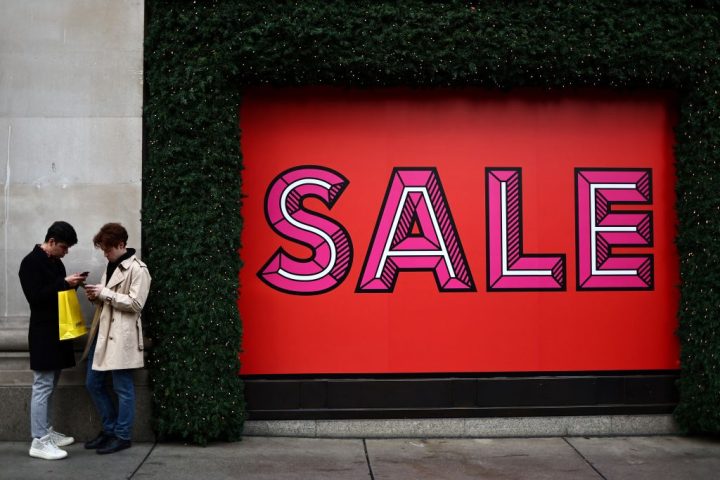Consumers seem finally to have thrown in the towel: they are no longer propping up the economy. After a year in which the predicted recession kept failing to arrive, the high street finally ran out of steam in December with a hefty 3.2 per cent fall in sales volumes compared with November. Non-food was down 3.9 per cent. Year on year, according to the retail sales figures published by the Office for National Statistics (ONS) this morning, sales were down 2.8 per cent in December.
This would appear to mark a headlong descent into recession – except that GDP figures published last week appeared to show the opposite: the economy rebounded by 0.3 per cent in December. So are we really sliding into the abyss or is the economy just fine?
There are ways to spend money other than in the shops or online. People can go to pubs and restaurants, they can have the builders in to put up a new extension, or they can travel. Moreover, businesses can invest, or produce more for export. The government, too, spends money – so it is not impossible to have the high street in recession while the rest of the economy does well.
Since the pandemic, retail sales and the general economy seem to have become decoupled
Alternatively, could December’s retail sales figures simply be a statistical quirk? The ONS’s figures are seasonally-adjusted, which means they are trying to take account of Christmas and smooth out retail spending as if it were spread equally across the year. The trouble, however, is that assumptions have to be made about how much more people will spend at Christmas. If those assumptions are out of date, and people are no longer conforming to the pattern of a huge pre-Christmas spending splurge, instead spreading out spending more across the year, it could skew the figures.
There is something is this. November’s retail sales figures showed a rise of 1.4 per cent. To have a rise in November followed by a fall in December would appear to confirm the ‘Black Friday’ effect, where consumers bring forward spending in order to take advantage of special offers in the last weekend of November.
However, the longer-term picture shows that retail sales volumes have been gently on the slide ever since the post-lockdown mini-boom in the middle of 2021 – and the slide began before interest rates began to bite. Retail sales volumes in the three months to December were only 95.6 per cent of what they were in 2019 – even though the overall economy is larger now than it was then.
Buying stuff, it seems, is going out of fashion. In some ways this should not comes as a surprise. Increasing numbers of young people are trapped in rented homes on short-term lets. You would not expect them to buy household goods in the way they would if they were furnishing their own home. You might expect, instead, to spend more money on going out and enjoying themselves.
For decades, the sound of cash tills ringing on the high street has been synonymous with the health of the economy as a whole. But since the pandemic, retail sales and the general economy seem to have become decoupled – and that applies to online retailing, too. Non-store retailing has done relatively well in the past five years – it is up 10 per cent since 2019 – but like general retailing it has been almost constantly on the slide since 2021. December’s retail sales figures are grim, but they are not as indicative of what is happening in the economy as whole as they once would have been.







Comments